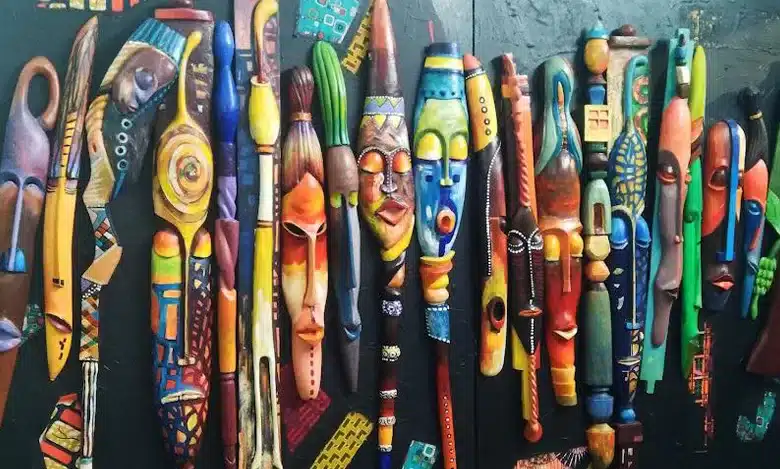
Authentic Rwandan Handicrafts: The Heart of Rwanda’s Culture
When most people think of souvenirs, they picture fridge magnets or T-shirts. But in Rwanda, one of the most meaningful souvenirs you can take home isn’t mass-produced; it’s handmade with heart, tradition, and local stories. From beautifully woven baskets and intricate beadwork to carved wood sculptures and vibrant textiles, Rwandan handicrafts are more than just objects; they’re living pieces of culture, history, and community. Every item carries the touch of an artisan whose skills have been passed down through generations, often supporting families and empowering communities.
And the best part? You don’t have to settle for generic souvenir shops. Across Rwanda, you can buy directly from the people who make these pieces, often watching them create right before your eyes. This guide will show you the best places to find authentic Rwandan handicrafts, from bustling local markets to women-led cooperatives and community art centers, so you can shop with purpose during your trip.
Why Rwandan Handicrafts Are Special
Handicrafts in Rwanda aren’t just beautiful , they are expressions of identity and community. These pieces are made by skilled artisans using traditional methods passed down for generations. Every stitch, weave, and carving reflects Rwanda’s natural landscapes and cultural values.
Popular Rwandan Crafts Include:
- Agaseke Baskets: Peace baskets symbolizing unity and love , often gifted during weddings and celebrations.
- Banana Leaf Art: Stunning wall art made from dried banana fibers, telling stories of rural life and tradition.
- Wood Carvings: Handmade sculptures of animals, masks, and figures carved from local wood.
- Beaded Jewelry: Colorful necklaces, earrings, and bracelets created with patience and pride.
- Kitenge Textiles: Vibrant patterned fabrics used for clothing, bags, and décor.
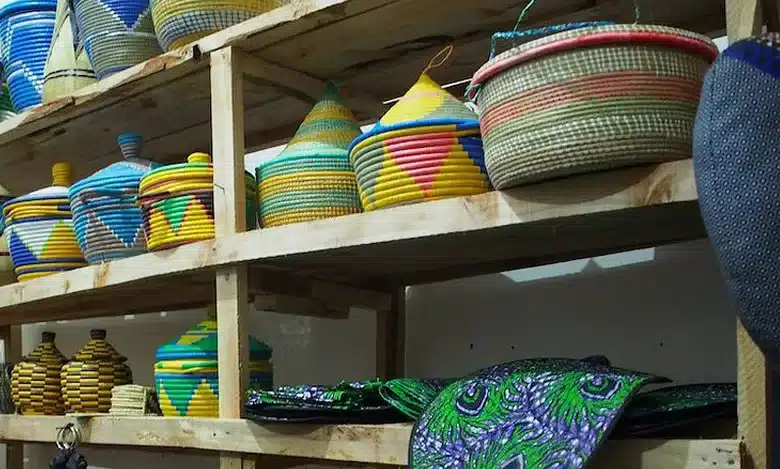
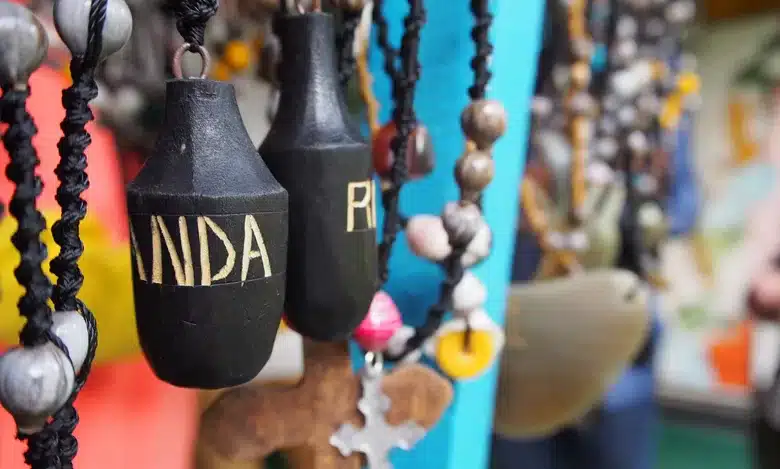
Where to Buy Authentic Handicrafts in Rwanda
1. Kimironko Market (Kigali)
A true local experience , Kimironko Market is Kigali’s largest and most vibrant market. Here you’ll find everything from handmade baskets to bright kitenge fabrics. Watch artisans at work, chat with vendors, and experience daily life up close.
Best for: Woven baskets, beadwork, wood carvings, and fabrics.
Location: Kimironko, Kigali | Best time: Morning to early afternoon | Tip: Bring cash and bargain respectfully , it’s part of the fun.
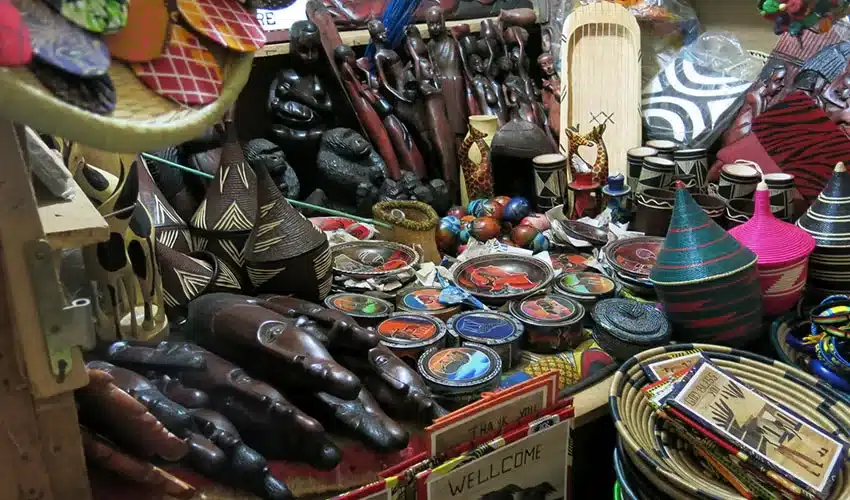
2. Caplaki Craft Village
A more organized artisan hub in Kigali, Caplaki Craft Village offers an easier shopping experience for visitors who prefer browsing through curated stalls. Each vendor represents different artisan cooperatives from across Rwanda.
Best for: Wood carvings, batik textiles, home décor, and handmade paintings.
Location: KN 5 Rd, Kigali | Best time: Afternoon | Why visit: Directly supports rural artisans through cooperative sales.
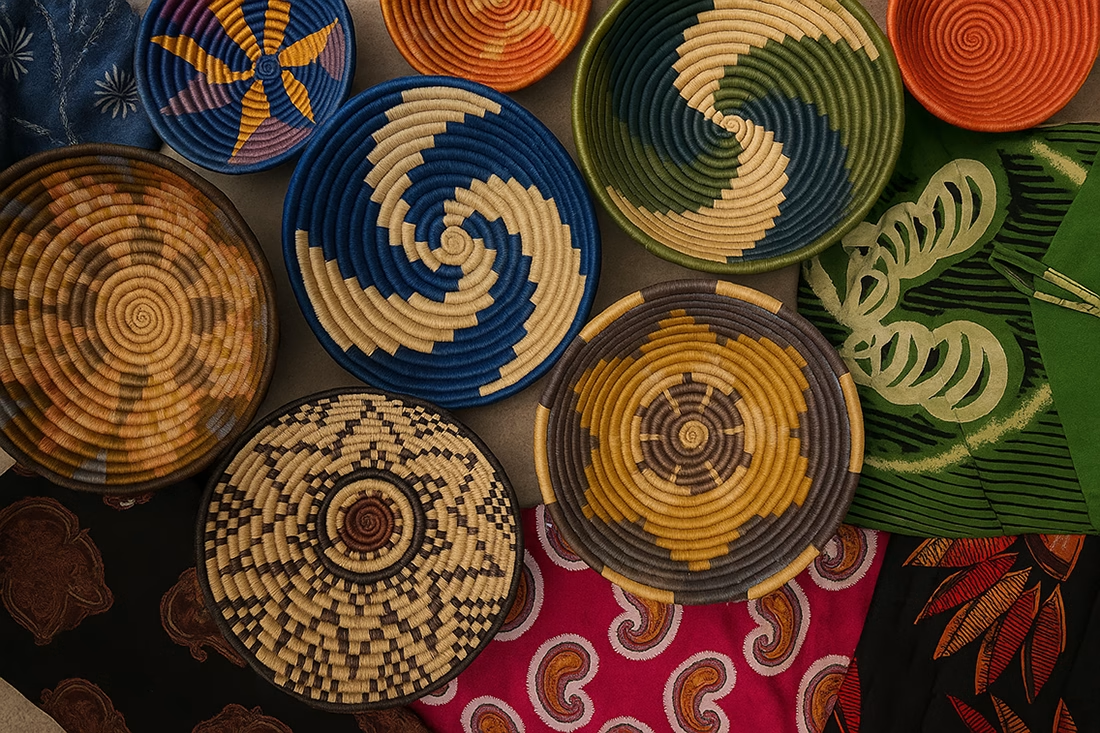
3. Nyamirambo Women’s Center
Located in Kigali’s most colorful neighborhood, the Nyamirambo Women’s Center (NWC) empowers local women through craft-making and education. You can shop beautiful handmade tote bags, aprons, and accessories , or join a workshop to make your own souvenir.
Best for: Fabric crafts, bags, notebooks, and women-led empowerment initiatives.
Location: Nyamirambo, Kigali | Why visit: Every purchase supports women’s independence and community programs.
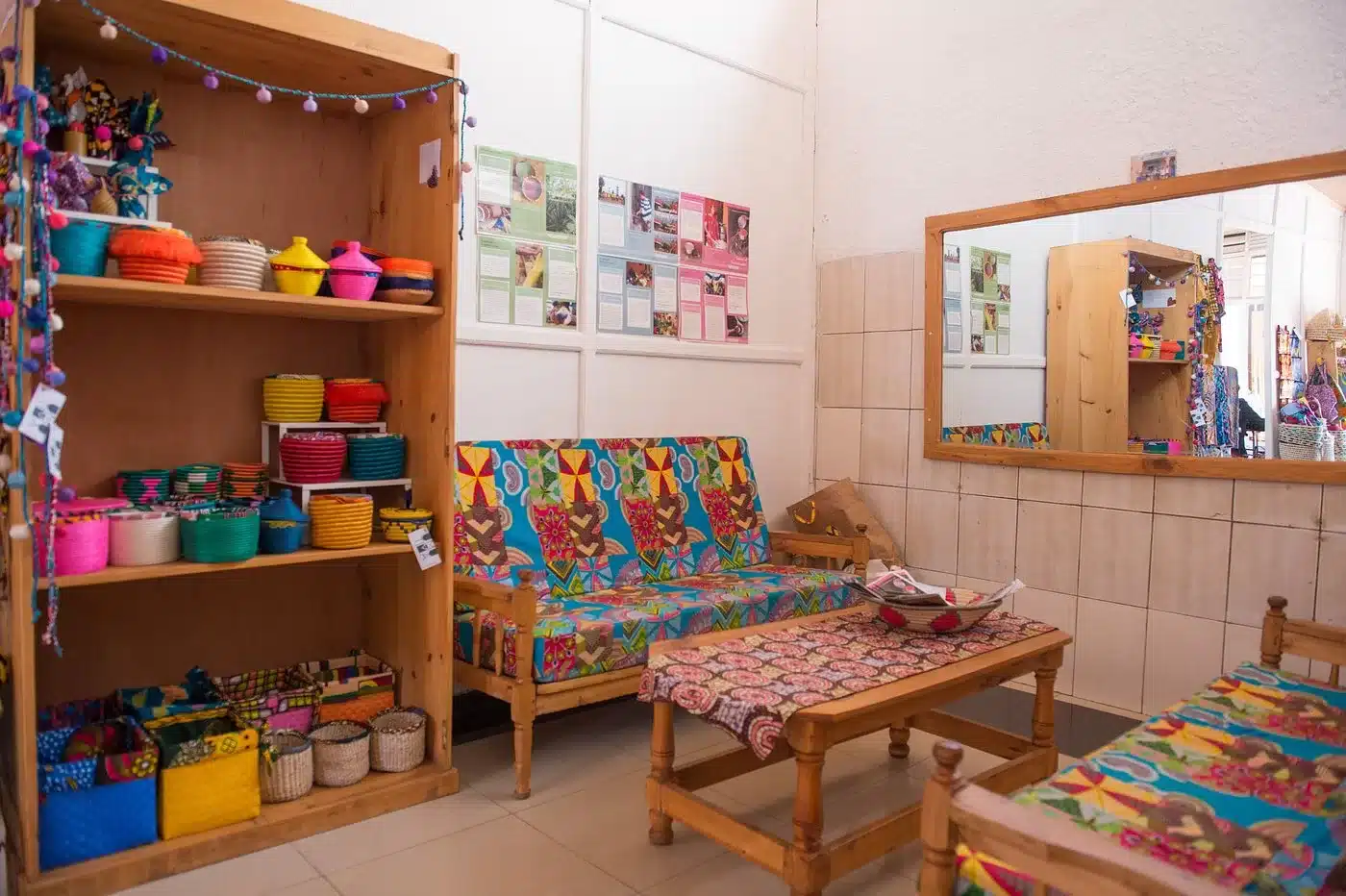
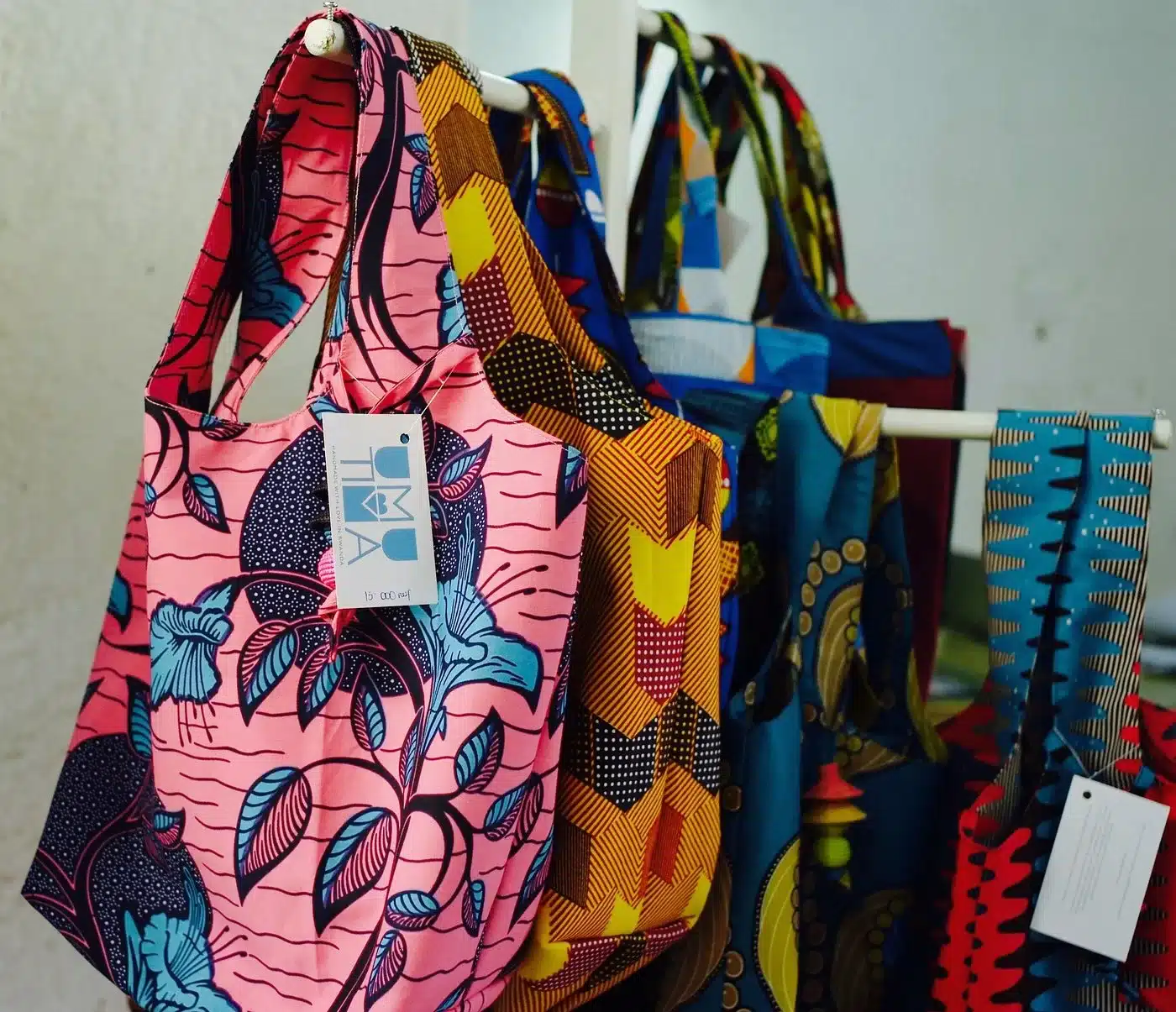
4. Red Rocks Arts & Crafts Center
Near Volcanoes National Park, Red Rocks combines eco-tourism with culture. Their craft center offers weaving, pottery, and traditional brewing experiences alongside a shop full of local crafts.
Best for: Banana fiber art, ceramics, handmade instruments, and cultural workshops.
Location: Musanze | Combine with: Gorilla trekking or a local village tour.
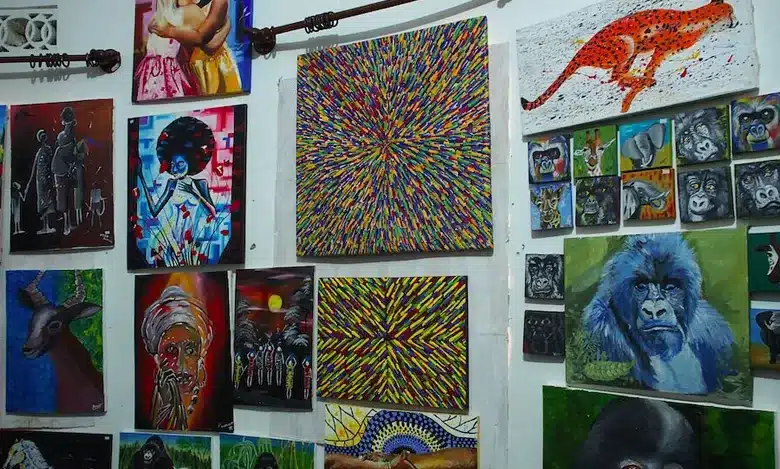
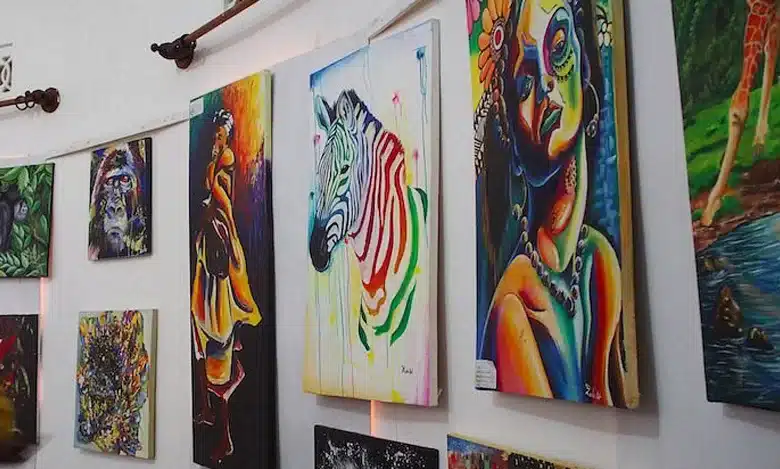
5. Iby’Iwacu Cultural Village
This inspiring village near Volcanoes National Park offers not only cultural performances but also a small craft market. Many artisans here are former poachers who found new purpose through sustainable art.
Why visit: Every handmade piece supports wildlife conservation and community transformation.
6. Azizi Life Artisan Groups
Based in Muhanga and Kigali, Azizi Life connects rural artisans with global markets through fair trade. You can even join an “Artisan for a Day” experience , weave your own basket and share a meal with a local family.
Best for: Fair-trade baskets, jewelry, and home décor.
Location: Muhanga & Kigali | Why visit: Ethical, immersive, and unforgettable.
Shopping Tips for Travelers
- Carry local currency (RWF) , many vendors don’t take cards.
- Ask about the story behind each craft , artisans love sharing their culture.
- Pack delicately , baskets and carvings can be fragile.
- Bargain kindly , remember your purchase helps support livelihoods.
- Ask before taking photos , it shows respect.
Rwanda’s handicrafts are not just souvenirs; they’re stories woven into every thread, carved into every sculpture, and beaded into every bracelet. By choosing handmade over mass-produced, you’re choosing to celebrate culture, support communities, and take home something truly meaningful. And if you’d like to support from afar, visit our RwandaTrip Ko-fi shop, where you’ll find digital wall art inspired by Rwandan patterns, colors, and landscapes. It’s a simple way to support creative storytelling and keep a part of Rwanda close, wherever you are.